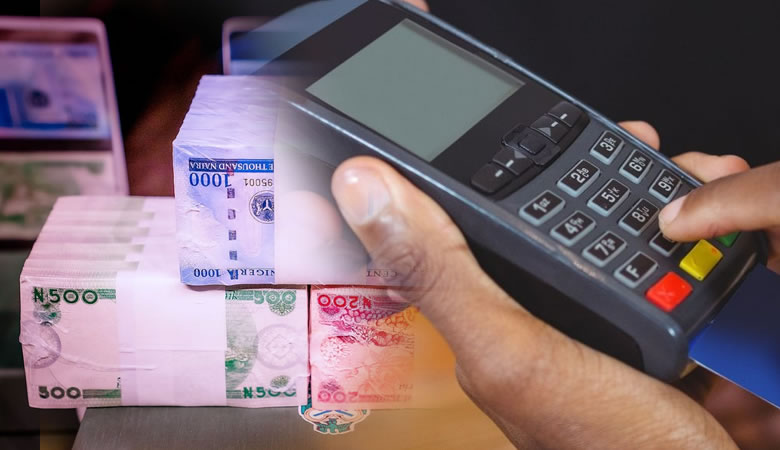When the Central Bank of Nigeria (CBN) introduced the Point Of Sales(POS) in 2013 in Nigeria, though there was initial skepticism by the citizens of the efficacy of the device, people later embraced it after a series of sensitisations.
People did not accept the POS operations wholeheartedly, until the Automated Teller Machine (ATM) and other terminal electronic transactions began to fail, with its attendant frustrations and inconveniences meted out on the users.
For example, failed transactions and incessant debit of the customers. Things got worse when ATM machines no longer bear cash as supposed to be. This ugly situation reared its head into the banking system of Nigeria, consequent upon the attempt by the former Governor of CBN, Godwin Emiefele to automatically replace the higher denominations of old Naira notes with new ones. A policy that almost collapsed the financial system of Nigeria, resulting in an all time cash crunch that forced Nigerians to buy their own money with more money from the POS operators.
The situation got so bad that a price tag of as much as N3,000 commission was placed to buy our own N5,000 from the Shylock POS operators. The heat was worsened by the last general elections in the country, where the politicians could not access money for campaigns and other logistics.
This probably made President Ahmed Bola Tinubu to fire the then CBN Governor on assumption of office. And worse still the then CBN Governor, Emiefele abortively attempted to contest for Presidency while still in office as CBN Governor.
Till date, the embattled ex-CBN Governor is still battling to wriggle himself out of the myriad of allegations of official misconduct preferred against him by the Anti-graft Agency in the country,talking about the Economic Financial Crime Commission (EFCC).
It is a known fact that the primary reason for introducing POS and other terminal electronic transactions has been abused and defeated. According to the CBN, the basic reason for introducing the PoS is to reduce cash in circulation and the risk of carrying huge cash around. But what do we have today? ATM machines littered all over the streets of Nigeria, without cash and ironically, POS operators are buoyant with enough cash, planked on cut-throat commission.
The question now is who regulates the POS operations and where are they sourcing their funds, when virtually every ATM machine in town is empty and the banks are rationing the amount of withdrawals for their customers at the banking halls.
As if that is not enough, transaction failure is now the order of the day at the ATMs. To add salt to the injury, failed withdrawals are indiscriminately backed with debits and reversal that used to be automatic is now history. The implication is that the affected customers must now go to their respective banks and commence documentations of incidence forms and in most cases seven working days are given for reversal, which may never come.
There have been complaints from customers who waited for the elusive seven working days, which never came and they naturally lost count and hope and the money just went like that. We are no longer talking about countless loss of manhours and its attendant inconveniences. So why are ATM machines not loaded and the POS machines are operational? Who should be held responsible for this sabotage or conspiracy?
Are bank customers no longer entitled to convenience, rights and privileges as customers? These are some of the questions begging for answers. At this juncture, it is pertinent to attempt to proffer solutions to this macabre dance of the POS operators and the banks.
First and foremost, there is no reason why the ATM machines should not be loaded by the respective banks. In the first place, the terminal electronic transactions were introduced to discourage customers from flooding the banking halls, but the recent “no cash syndrome” at the ATMs has forced customers to start thronging banking halls for smaller transactions that would have been conveniently carried out without entering the banks. So the primary cure to this ailment is to load the ATM machines and make banking transactions seamless.
Again incessant debits without payment at ATMs must be checked. If reversal is automatic as it used to be, customers will sweat less. Why can’t we improve in what we have started, via automatic reversal, if transactions must fail? This will save man-hours loss and stress of visiting the banks only to fill incidence/transaction failure forms. What effectively operates globally should equally work or operate in Nigeria. We don’t have any option, let it not fall under the derogatory terminology of ‘Nigerian factor’ or ‘African time’ as they call it.
The POS operations system is a beautiful concept that should not be allowed to die, provided it is done and regulated well by the CBN. We know that it is not too difficult to do the right thing, it is just a matter of determination, commitment and political will.

